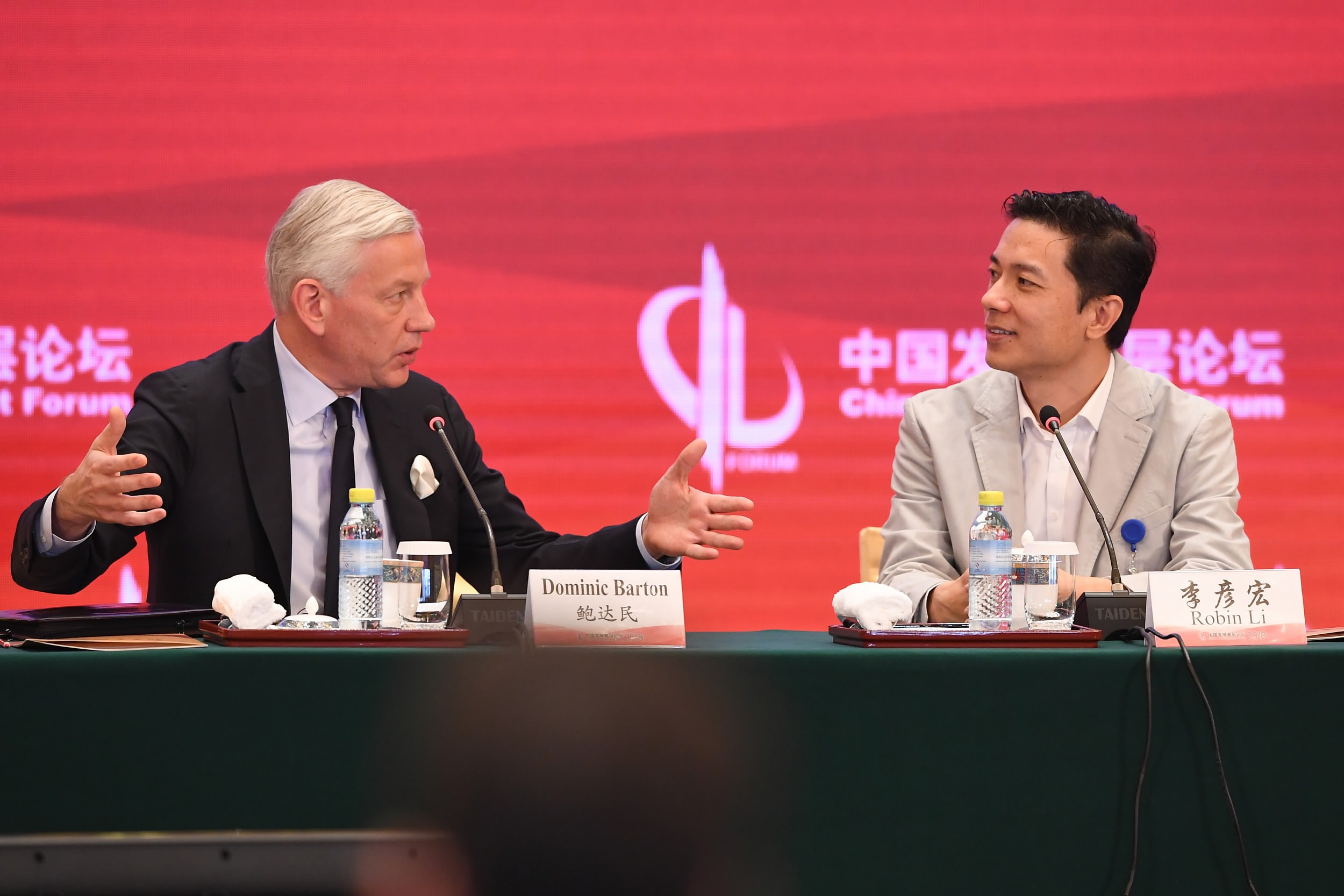
Business
13:34, 27-Mar-2018
Permission denied? Netizens tackle Baidu chief on data privacy
Nicholas Moore

Baidu founder Robin Li met a hostile online reaction on Monday, after telling the China Development Forum that most Chinese people are happy to give up their personal data in return for greater convenience online.
As Li gave his view on China’s rapid advances in AI, online technology and innovation, netizens responded to his comments by asking, “who told you we are willing to give up our data?” or simply responding “I am not willing.”
The ongoing Facebook and Cambridge Analytica scandal has again thrown data privacy into the spotlight in the West, and the backlash against Li’s comments suggest people in China are growing equally concerned about how their personal information is gathered and used by tech companies.
While Li looked to use the forum as a platform for promoting Baidu’s research into autonomous vehicle technology and investments into AI, most media picked up on and led with his comments about data privacy.

Baidu founder Robin Li (R) alongside managing director of McKinsey Dominic Barton at the China Development Forum, Beijing, March 26 2018. /VCG Photo
Baidu founder Robin Li (R) alongside managing director of McKinsey Dominic Barton at the China Development Forum, Beijing, March 26 2018. /VCG Photo
The Baidu founder, who has a net worth of 13.2 billion US dollars, said only 20 percent of useful data is available online, while the remaining 80 percent “lies in the hands of enterprises. If more of that data can be put together, our capacity to achieve more will rise exponentially.”
Li went on further to explain that he thought “Chinese people can be even more open, and not so sensitive about data protection. If they are willing to exchange private data for convenience, and people are willing to do so under many circumstances, then we can make more use of that data.”
The overwhelming majority of comments on Sina Weibo regarding Li’s comments were negative, with one top-rated comment calling the Baidu CEO “shameless and despicable,” adding it was “a great sorrow that such a person was regarded as a key opinion leader in his industry.”
Other comments said Li’s views were “typical of Baidu acting with pride rather than a sense of shame” when it comes to “trampling on people’s private information.”
In January, Microsoft president Brad Smith told the Wall Street Journal that privacy laws were “restricting AI development” in certain countries, in a nod to China’s rapid development in the sector.
On March 22, Tao Dong, the president of Credit Suisse in the Greater China region, told CNBC that China would “win the AI race” because “China has no serious law protecting data privacy.”
Tao added that he expected new laws to slowly be introduced in the future, predicting that tighter regulations on data usage would affect China’s tech companies.
Attitudes towards data privacy appear to be changing in China, compared with previous years. A 2013 global survey by the Boston Consulting Group found only 50 percent of Chinese people surveyed were concerned about giving away personal information online, compared with around three quarters of respondents in the West.

Facebook founder Mark Zuckerberg has come under immense pressure following the Cambridge Analytica scandal. /VCG Photo
Facebook founder Mark Zuckerberg has come under immense pressure following the Cambridge Analytica scandal. /VCG Photo
In 2016, a study by the Internet Society of China revealed that 84 percent of respondents reported having their personal data stolen online.
The Ministry of Industry and Information Technology (MIIT) warned some of China’s biggest Internet companies in January this year that they needed to do more to inform users about how they collected and used personal data.
A statement on the MIIT’s website mentioned Baidu and Ant Financial, and warned that all Internet companies “must not collect user information that is not necessary for providing services, must not use the information for purposes other than providing services, and must not illegally sell or provide user information to others.”

SITEMAP
Copyright © 2018 CGTN. Beijing ICP prepared NO.16065310-3
Copyright © 2018 CGTN. Beijing ICP prepared NO.16065310-3